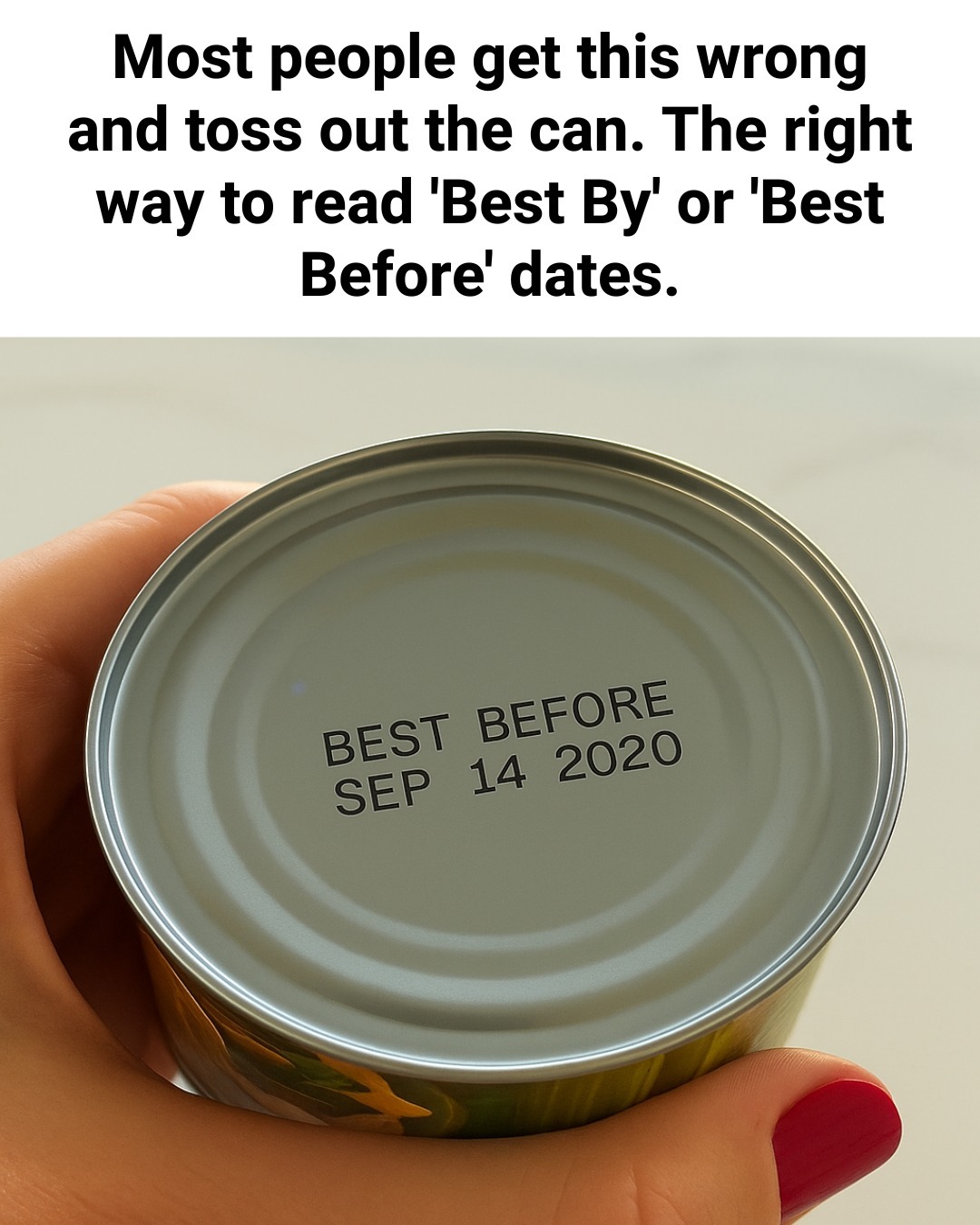Truth About Expired Canned Food …How Long Is It Really Safe
Most kitchens have a few forgotten cans hidden in the back of a pantry—soups, beans, or vegetables purchased long ago and left untouched. When they’re finally discovered, most people instinctively check the date printed on the label. If it’s expired, the can usually ends up in the trash. However, this common reaction often leads to unnecessary waste. The truth is, most of the dates printed on canned goods are not true expiration dates, but rather indicators of quality. Knowing the difference can save money, reduce food waste, and help you safely enjoy perfectly good food.
Labels such as “Best By,” “Best Before,” and “Use By” can be misleading. “Best By” and “Best Before” simply refer to the time when the food is at its highest quality in terms of taste and texture, not when it becomes unsafe. “Use By” dates, while more commonly applied to perishable foods like milk or meat, also often mark peak freshness rather than safety. So, if a can is past its printed date, it’s usually still safe to eat—though the flavor may not be quite as perfect as before.
The true safety of canned food depends largely on how it’s stored. Cans kept in a cool, dry place—away from heat and sunlight—can remain edible for years. High-acid foods such as tomatoes or pineapple last about 12 to 18 months, while low-acid foods like beans or corn can stay good for three to five years or more. According to the U.S. Department of Agriculture, properly stored canned foods can remain safe indefinitely, as long as the can itself is in good condition.
Still, there are clear signs to watch for. Cans that are bulging, rusted, leaking, or badly dented should never be eaten, since damaged seals can allow harmful bacteria, including those that cause botulism, to grow. If a can emits a foul odor, hisses, or looks discolored inside, it’s best to throw it away.
By understanding these details, consumers can make smarter, safer decisions—and help prevent tons of edible food from going to waste.






Post Comment